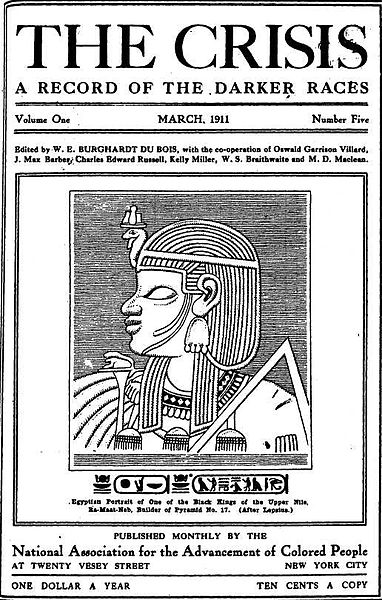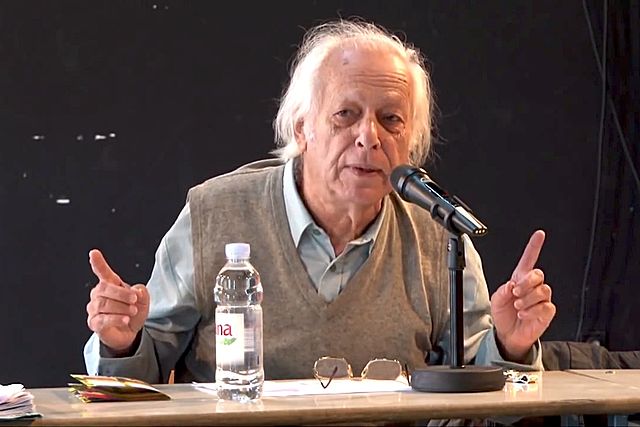Afrocentrism is a worldview that is centered on the history of people of African descent or a biased view that favors it over non-African civilizations. It is in some respects a response to Eurocentric attitudes about African people and their historical contributions. It seeks to counter what it sees as mistakes and ideas perpetuated by the racist philosophical underpinnings of Western academic disciplines as they developed during and since Europe's Early Renaissance as justifying rationales for the enslavement of other peoples, in order to enable more accurate accounts of not only African but all people's contributions to world history. Afrocentricity deals primarily with self-determination and African agency and is a pan-African point of view for the study of culture, philosophy, and history.
A 1911 copy of the NAACP journal The Crisis depicting "Ra-Maat-Neb, one of the kings of the Upper Nile", a copy of the relief portraying Nebmaatre I on Meroe pyramid 17.
Eurocentrism refers to viewing the West as the center of world events or superior to all other cultures. The exact scope of Eurocentrism varies from the entire Western world to just the continent of Europe or even more narrowly, to Western Europe. When the term is applied historically, it may be used in reference to the presentation of the European perspective on history as objective or absolute, or to an apologetic stance toward European colonialism and other forms of imperialism.
Eurocentrism as the term for an ideology was coined by Samir Amin in the 1970s.


